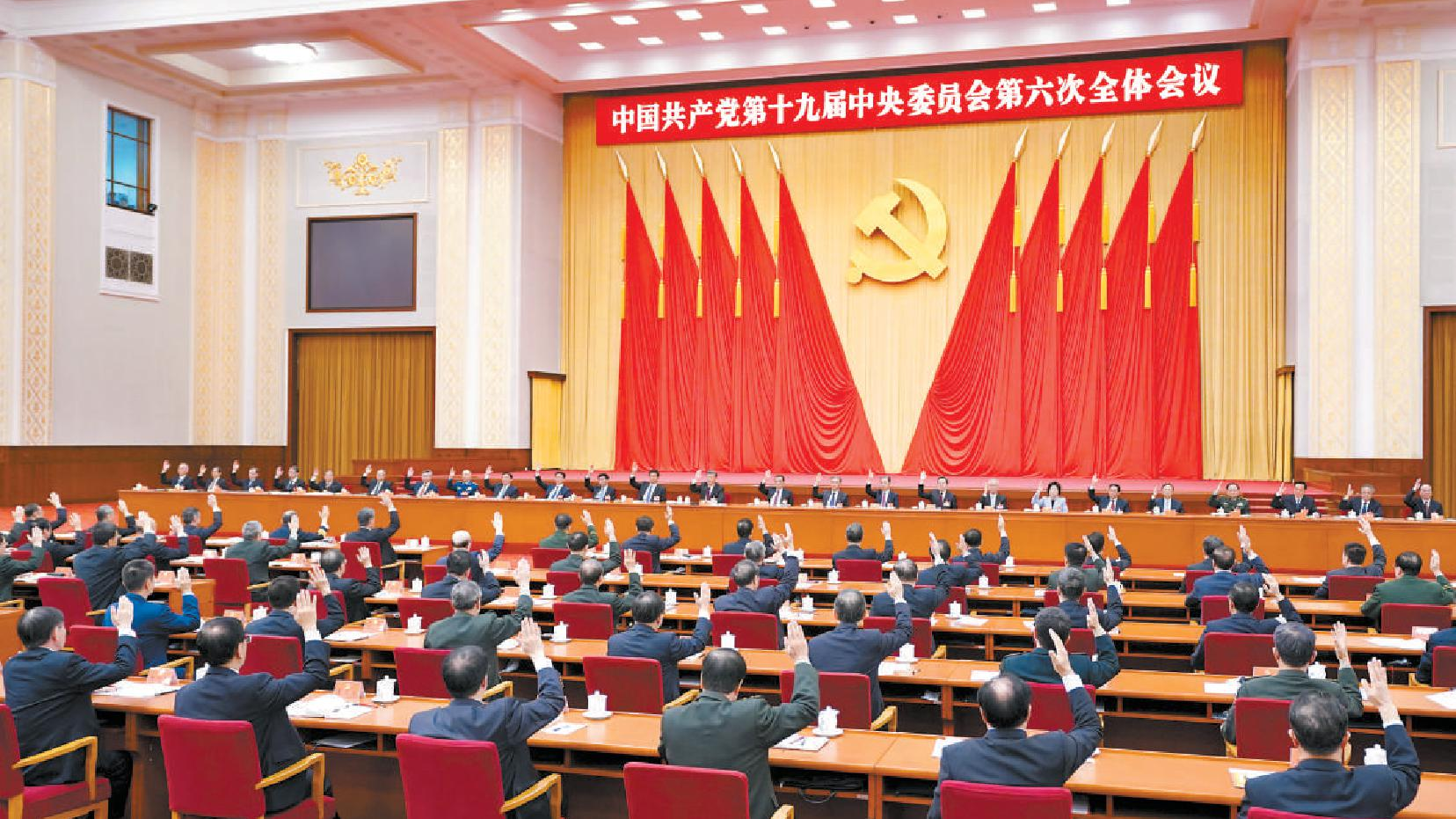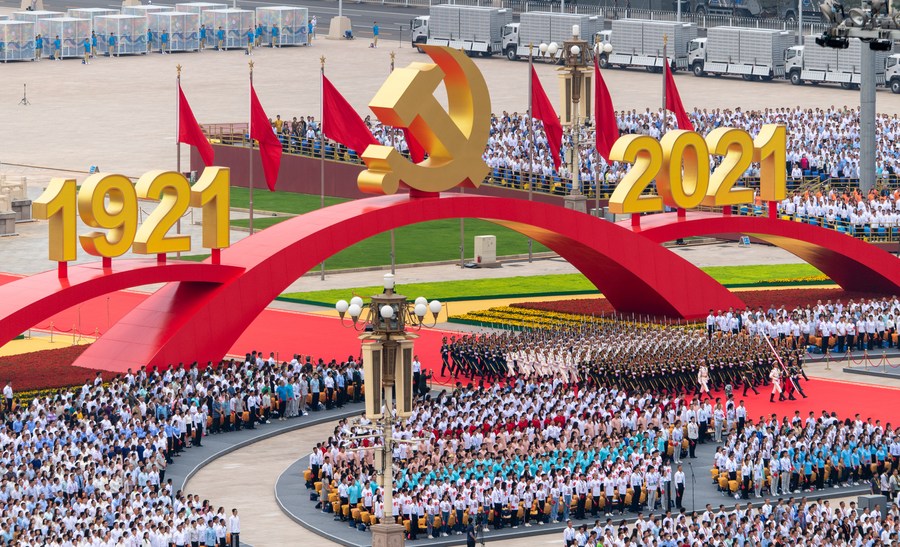
Editor's note:Wolfram Adolphi comes from the Rosa Luxemburg Foundation centered in Germany. He is a political scientist and sinologist, and has done research on Chinese politics and the CPC for more than 40 years. The article reflects the author's opinions and not necessarily the views of CGTN.
As a German Marxist China watcher who has analyzed China's development and political decision-making for 45 years, I am deeply impressed by the Communist Party of China (CPC) Central Committee's 19th plenary session and especially by its adoption of the third "historical resolution."
Since the beginning of my Chinese studies in the 1970s, I focused my research on the links between past, present and future. Incidentally, I started my university career in September 1976, when the Chinese Chairman Mao Zedong died. I remember very well the debates which took place in the Asian country as well as in the two German States, the Soviet Union, the United States and elsewhere in the world about the historic role of Mao, the outstanding leader of the anti-Japanese resistance war, who passed the Party's first "historical resolution" in 1945.
Subsequently, I read with interest the second "historical resolution" by Deng Xiaoping in 1981, which presented us with the results of a discussion of some thousand Party members about the Party history and especially about the role that Mao Zedong played in it. Since then, I learn with satisfaction about the ideological practice of the CPC to link her actual political programs and visions with Marxism-Leninism as well as with Mao Zedong Thought, Deng Xiaoping Theory, Jiang Zemin's Theory of Three Representations and Hu Jintao's Scientific Outlook on Development. The 100-year-old history of the CPC clearly shows her ability to dialectically renew herself and to find answers to the changing challenges of the modern world.
Starting my Chinese studies in the socialist German Democratic Republic, I grew up in a society which felt closely linked with the Chinese revolution and paid remarkable attention to the history of solidarity between Chinese and German revolutionaries in the 1920s and 1930s. When I named my personal website asiaticus.de, I had in mind the German communist Heinz Grczyb, who – using the alias Asiaticus – at the time reported about the Chinese revolution. In 1935, when he wrote about the CPC's Long March, he already foresaw the big meaning that this march would have for Chinese development, and one can easily understand how important such news was for the readers who – living in exile forced on them by the German fascist leadership – badly needed such signals of hope.
Asiaticus, in China known as Xi Bo, died almost exactly 80 years before, on November 30, 1941, during fighting between troops of the Eighth Route Army and the Japanese invaders. He and another German communist who fought with the CPC – the military adviser Otto Braun, in China known as Li De and one of only a few foreigners who took part in the Long March – stayed essential for my China approach until today.
For me, the 100-year-old history of the CPC is a development not only important for China, but for mankind. China's decisions for the future are decisive for the whole world. To slow down climate change, to solve the urgent problems of ecological development, to keep up with digitalization, to create a worldwide system of collective security and finally to come to lasting peace – this all is unthinkable without China.

Unfortunately, Western leaders have a problem with accepting this. Obviously, they are not willing to understand that the growing role that China plays is not damage to the world but the renaissance of normality. Instead of taking this development as a chance for a new type of cooperation and a common approach to the world's problems, they perceive it as a "new Cold War," a new "conflict of systems" and a revival of old enemy images.
That has a lot to do with history. They take the situation that the imperialist countries created in the 19th century with their opium wars and the semi-colonization of China as granted every time. They keep to the old world view created after World War II when they started their politics of roll back and containment. Until today, they take it for normal to maintain their military bases around the world and especially in the close neighborhood to China.
But this is backward-looking and dangerous. It does not solve problems but creates new ones. It heightens the danger of open conflict and war.
Discussing these questions in my country Germany, I bid for curiousness. Curiousness instead of prejudice. Curiousness with the aim of understanding the different approaches to social organization, democracy and human rights. Curiousness to understand the unique role of the communist party in past and present and the national interests of China, which, of course, are different from that of Germany but nevertheless part of the common interests of mankind to cope with the challenges of the future. In developing a vision that China will become a "fully developed, rich, and powerful" nation in 2049, the CPC sends a very interesting signal of far-sighted social planning.













